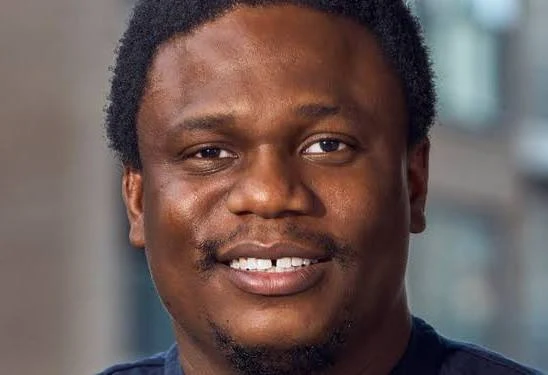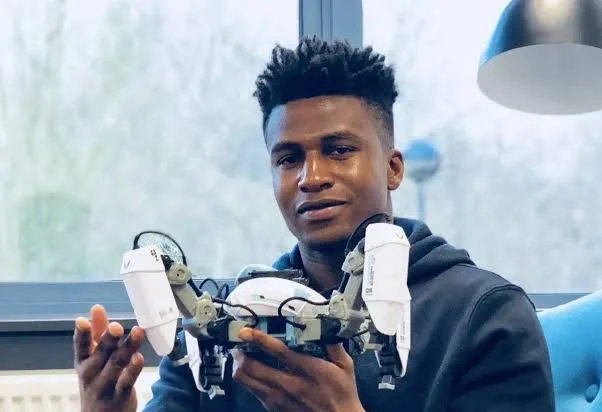Nigerian Tech Founders Who Redefined Innovation in Africa

Introduction
Remember the popular saying that not all heroes wear capes. Some do great things that may not always be felt on a large scale, yet their impact shapes lives every single day. In Nigeria, there are innovators who have redefined the tech space, making life easier for countless people to work, create, and thrive not just within the country, but across Africa and the world. These are the unsung heroes who, through their startups and innovations, have built safe havens for the average individual. Their efforts deserve recognition, because good work deserves appraisal. More importantly, their stories serve as a call to all Africans: to become heroes in their own right, starting with what they have, right where they are.
In 2025, the tech landscape is no longer about merely catching up. It is about creating, leading, disrupting, and providing real solutions. It’s not about chasing the next big name, but about ensuring that real impact is spread far and wide. And that is exactly what these ten founders have done and continue to do. They have built startups and platforms that touch lives from Nigeria to Kenya, Namibia, and even parts of Asia and beyond. They didn’t wait for validation from anyone else before chasing their dreams and neither should you. Here is a list of some tech founders, a space that is brimming with so many brilliant minds and not just limited to the amazing individual listed here.
1. Olugbenga “GB” Agboola — Flutterwave (Nigeria)

Olugbenga “GB” Agboola, a Nigerian entrepreneur, built Flutterwave into a powerhouse that continues to dominate conversations around payments infrastructure in Africa. Under his leadership, the company has secured licenses in new markets like Zambia and launched integrations that simplify government operations, including helping Nigeria’s Federal Inland Revenue Service digitize tax collection. This blend of infrastructural depth and strategic expansion makes Agboola one of the defining innovators of 2025. Through Flutterwave’s systems, small businesses and startups across the continent have been able to scale and grow, making seamless payments a reality.
The company’s innovative solutions have also drawn major investments from global players such as Visa, cementing its status as one of Africa’s leading fintech companies and a unicorn valued at over $3 billion. Yet, the mission extends beyond just payments, it is about building the foundational infrastructure that will drive Africa’s digital economy into the future.
2. Shola Akinlade — Paystack (Nigeria)
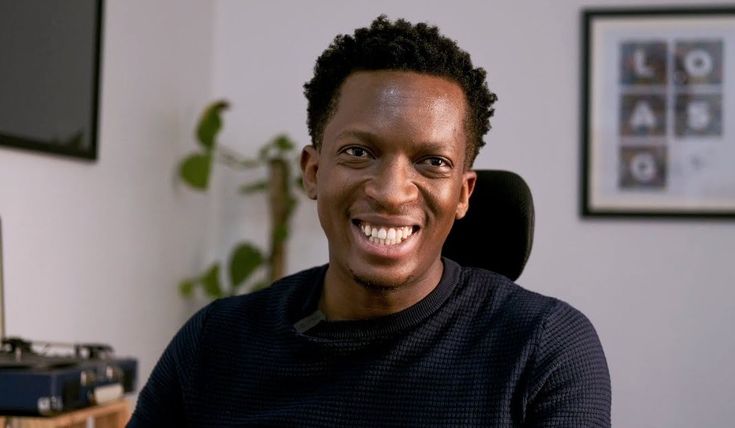
Shola Akinlade, another Nigerian visionary, co-founded Paystack with a mission to give merchants reliable, developer-friendly access to payments. That mission has more than paid off. By combining technical excellence with a sharp understanding of Africa’s diverse markets, Akinlade and his team built a system that quickly became indispensable to businesses across the continent. Paystack remains a benchmark for how payment systems in Africa should operate, smooth, localized, and accessible. Its innovative approach attracted strong international interest, and in 2020, the company was acquired by Stripe in one of the most notable African tech deals of the decade. Since then, Paystack has grown tremendously, expanding its reach and deepening its role in Africa’s financial ecosystem right from Lagos.
3. Iyinoluwa “E” Aboyeji — Future Africa (Pan-Africa)
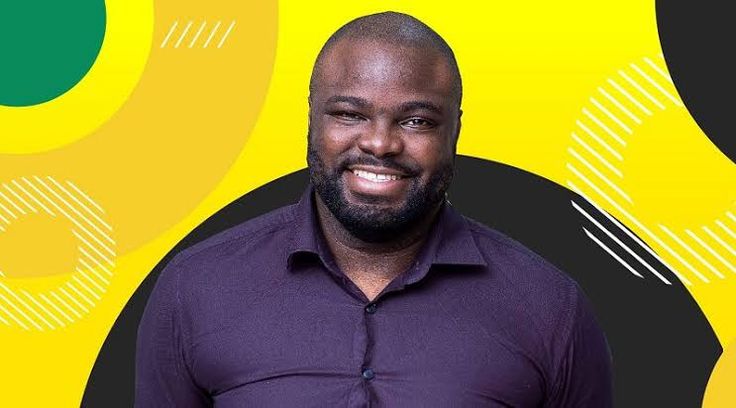
Iyinoluwa “E” Aboyeji is not just a founder, he is a builder of builders. Through his venture platform, Future Africa, he has invested in and mentored over 100 startups across the continent, seeding the next generation of African innovation. His vision demonstrates that tech leadership in Africa isn’t only about scaling one company; it’s about creating an ecosystem where many can thrive. Before Future Africa, Aboyeji co-founded Andela, which trained Africa’s top software developers for the global market, and later served as a co-founder and Managing Director at Flutterwave, one of the continent’s leading fintech unicorns. His career trajectory has been defined by a consistent commitment to turning bold ideas into systems that empower thousands. In 2019, Aboyeji was recognized among the Top 100 Most Influential Africans by New African magazine, a testament to his impact not only as an entrepreneur but also as a thought leader shaping Africa’s digital future. Today, his mark on the tech space is evident not just in companies he helped build, but in the countless startups he continues to support, proving that true legacy is measured in how many others you empower.
Blessing Abeng — Ingressive for Good / Disha (Nigeria)
Photo credit: Google image
Blessing Abeng is a Nigerian entrepreneur and co-founder of Disha, a platform for creators that was later acquired by Flutterwave. She is also one of the founders of Ingressive for Good (I4G), a non-profit focused on providing tech training, scholarships, and resources to African youth. Her impact has been widely recognized: in 2022, she received the African Achievers Award of the Year, and in 2023, she was featured in Forbes Africa’s 30 Under 30 list. Abeng straddles two worlds, nonprofit and tech innovation. Through I4G, she has helped close critical access gaps in technology and opportunity for young Africans, while her work with Disha created vital tools for digital creators. Her leadership positions her as a driving force in shaping Africa’s digital and creative future.
5. Kennedy Ekezie — Tech Product Design & Aggregation

Kennedy Ekezie is one of the youngest Nigerian founders gaining attention on Africa’s startup scene. He is the co-founder and Chief Executive Officer of Kippa, a fintech startup providing digital tools that help small businesses manage finance, inventory, and growth. Ekezie’s strength lies in bridging design, product experience, and local relevance. He approaches product building with empathy, ensuring that technology aligns with the daily realities of traders, informal workers, and community-based businesses. His work proves that product design is not an afterthought to engineering, it begins with understanding people. Through Kippa, Kennedy is helping to level the playing field for small and informal businesses, giving them access to the kind of tools that fuel growth and sustainability in Africa’s emerging economies.
6. Sim Shagaya — uLesson
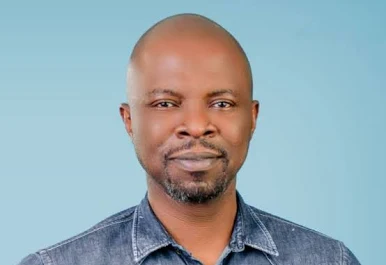
Sim Shagaya is one of Africa’s most visionary tech entrepreneurs. As the founder and CEO of uLesson, he is redefining how millions of students across West Africa access learning. In regions where educational infrastructure is inconsistent, uLesson provides a digital bridge, delivering accessible, engaging, and high-quality educational content through mobile technology. Beyond uLesson, his earlier success with Konga, one of Nigeria’s pioneering e-commerce platforms, highlights his track record of building solutions that address Africa’s structural challenges at scale. With uLesson, Shagaya continues to prove that technology is not just about convenience, it’s about transformation, giving young Africans the chance to learn, compete, and succeed on a global stage.
Tosin Eniolorunda — Moniepoint (Nigeria)
Photo credit: Google image Tosin Eniolorunda, a Nigerian software engineer and entrepreneur, is the co-founder and CEO of Moniepoint Inc., one of Africa’s fastest-growing fintech companies. Moniepoint has become a lifeline for small business owners, powering transactions across shops, kiosks, and outlets with its ubiquitous POS machines. For millions of traders and everyday entrepreneurs, Moniepoint is more than a service, it is infrastructure.
Moniepoint has expanded beyond payments to offer digital banking services tailored for micro, small, and medium enterprises. By focusing on inclusion and accessibility, the company has become one of the continent’s most dominant fintech players, empowering local economies and strengthening Africa’s financial backbone.
Silas Adekunle — Reach Robotics (Nigeria / UK)
Photo credit: Google image
Silas Adekunle, a Nigerian-British inventor and technology entrepreneur, is best known for creating MekaMon, the world’s first intelligent gaming robot, through his company Reach Robotics. By blending robotics with augmented reality (AR), Adekunle pioneered a new era of immersive entertainment, allowing users to engage in lifelike, interactive battles powered by a smartphone app. His work bridges engineering, creativity, and play, proving that African innovators can lead in frontier technologies far beyond the continent. Silas has been recognized globally for his ingenuity, securing partnerships with tech giants like Apple, which stocked MekaMon in its stores worldwide. Beyond gaming, his journey inspires a new generation of African and diaspora youth to pursue robotics, AI, and STEM fields with confidence that their innovations can make global impact.
9. Mitchell Elegbe — Interswitch
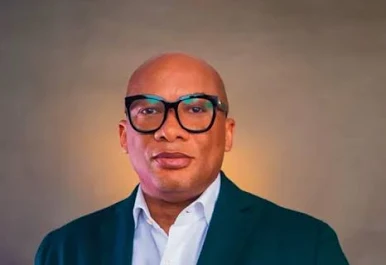
Mitchell Elegbe is a pioneer in Nigeria’s fintech revolution. As the founder and CEO of Interswitch, established in 2002, laid the groundwork for Africa’s digital payment ecosystem long before “fintech” became a buzzword. Under his leadership, Interswitch evolved into one of the continent’s earliest billion-dollar companies, setting a precedent for what African innovation could achieve on a global scale.
By digitizing payments, introducing secure and scalable solutions, and driving financial inclusion, Interswitch has not only transformed how Nigerians pay and get paid but also provided the blueprint upon which many of today’s fintech giants, from Flutterwave to Paystack, have been able to thrive. Elegbe’s work shows the power of vision, persistence, and early adoption in shaping Africa’s tech landscape.
10. Tope Awotona — Calendly (Nigeria/USA)
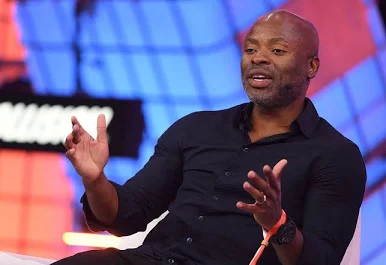
Tope Awotona, a Nigerian-born entrepreneur based in the United States, is the founder and CEO of Calendly, a world-class scheduling automation platform used by millions globally, from small startups to Fortune 500 companies. Designed to eliminate the endless back-and-forth of booking meetings, Calendly has grown into a leading SaaS solution trusted by teams across industries.
What makes Awotona’s journey remarkable is his resilience and vision. He bootstrapped Calendly in its early years, building a profitable business before ever taking outside funding, a rare feat in the tech world. Today, Calendly stands as a global powerhouse, showing how African ingenuity can scale internationally while solving universal problems.
Why These Founders Matter More Than Titles
These founders are not just chasing valuations or headlines, they matter because of how and why they build:
They build for local realities, not imported blueprints. From building various startups tailored for ease for both Nigerians, African and the world, these innovators solved problems with African-born solutions.
They are closing access gaps. Tech here isn’t just about slick apps or billion-dollar exits. It’s about giving a market vendor the ability to accept card payments, enabling a student to access interactive lessons, helping small traders secure loans, or streamlining local supply chains. These founders reduce friction in daily lives, cutting out frustration and creating real opportunities.
They push scalable change. Their solutions don’t just grow across cities but across borders. Building products resilient enough to thrive in multiple markets reflects adaptability, resilience, and genuine economic impact.
They didn’t wait. While that might sound like an everyday phrase, it’s the truth, they didn’t wait to propose solutions or for validation from the outside world. They acted, and in doing so, they’ve shifted the narrative of African innovation.
Challenges & What Must Change
Still, we cannot ignore the barriers that hold the average African back from fully realizing its potential as a global innovation powerhouse:
Funding gaps & investor confidence — Early-stage funding remains inconsistent, with many startups unable to scale beyond seed rounds.
Regulatory fragmentation — Complex and varied policies across fintech, taxation, and data protection create costly hurdles for cross-border expansion.
Talent & infrastructure gaps — While hubs like Lagos, Nairobi, and Cape Town thrive, many African cities still lack reliable electricity, fast internet, research facilities, and modern R&D tools.
Brain drain — Talented founders and engineers are often lost to foreign markets, limiting the depth of local ecosystems.
Conclusion: The Road Ahead
If Africa’s fintech success stories have shown us anything, it’s this: founders are no longer waiting to be invited to the table. Anyone who dares to build can find a seat — and some are building entirely new tables of their own. Innovators like Agboola, and others have proven what’s possible and what must become the norm.
The question is no longer who will be Africa’s next unicorn? The question is: who will be the next founder of something transformative?
And maybe, just maybe, that founder could be you.
You may also like...
When Sacred Calendars Align: What a Rare Religious Overlap Can Teach Us

As Lent, Ramadan, and the Lunar calendar converge in February 2026, this short piece explores religious tolerance, commu...
Arsenal Under Fire: Arteta Defiantly Rejects 'Bottlers' Label Amid Title Race Nerves!

Mikel Arteta vehemently denies accusations of Arsenal being "bottlers" following a stumble against Wolves, which handed ...
Sensational Transfer Buzz: Casemiro Linked with Messi or Ronaldo Reunion Post-Man Utd Exit!

The latest transfer window sees major shifts as Manchester United's Casemiro draws interest from Inter Miami and Al Nass...
WBD Deal Heats Up: Netflix Co-CEO Fights for Takeover Amid DOJ Approval Claims!

Netflix co-CEO Ted Sarandos is vigorously advocating for the company's $83 billion acquisition of Warner Bros. Discovery...
KPop Demon Hunters' Stars and Songwriters Celebrate Lunar New Year Success!

Brooks Brothers and Gold House celebrated Lunar New Year with a celebrity-filled dinner in Beverly Hills, featuring rema...
Life-Saving Breakthrough: New US-Backed HIV Injection to Reach Thousands in Zimbabwe

The United States is backing a new twice-yearly HIV prevention injection, lenacapavir (LEN), for 271,000 people in Zimba...
OpenAI's Moral Crossroads: Nearly Tipped Off Police About School Shooter Threat Months Ago
ChatGPT-maker OpenAI disclosed it had identified Jesse Van Rootselaar's account for violent activities last year, prior ...
MTN Nigeria's Market Soars: Stock Hits Record High Post $6.2B Deal

MTN Nigeria's shares surged to a record high following MTN Group's $6.2 billion acquisition of IHS Towers. This strategi...

